There are many different ways to make notes. Some are better suited to taking notes in lectures and some to making notes from reading. Try out some of the ideas below to find the ones which suit you best.
- Cornell Method
- Outline/linear method
- Mind mapping
- Four quarter method
- Write-on-the-slides method
- Doodle/sketch method
- Table/matrix method
Cornell Method
Use two-thirds of the page for taking notes in a lecture then add questions, key words, pictures or extra information in the cue column. If revising for exams, you can hide the main section and test your recall. Use the bottom section as a summary, a link to other information, a 'next steps' list or anything you like...
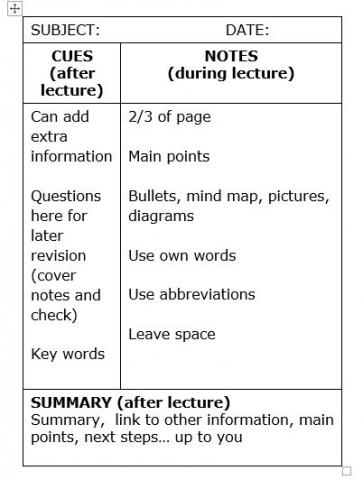
Watch a short video about the Cornell method.
Or, download our Cornell Word template below:
Outline/linear method
Break information into topics and subtopics to make it more structured, understandable and memorable.
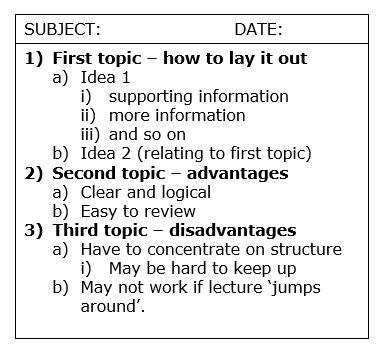
Watch a short video about the Outline method.
Mind mapping
This helps you see the connections between ideas and information and is particularly memorable for visual learners.
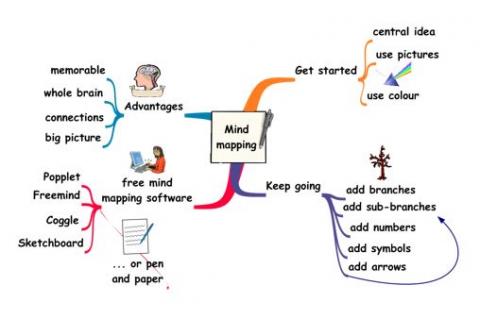
Watch a short video about mind mapping.
Four quarter method
Divide your page into quarters, with each quarter representing 15 minutes of the lecture. The limited space encourages you to be concise, e.g. using key words, symbols and abbreviations. It may also help with focus and concentration.
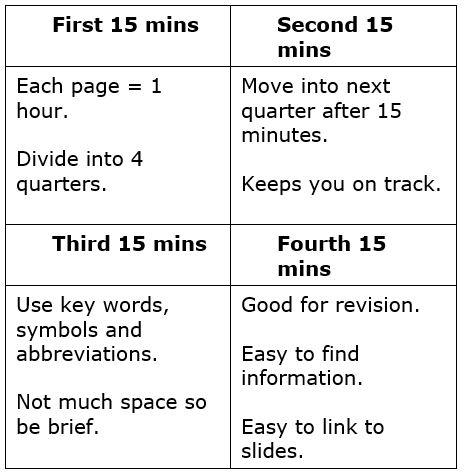
Write-on-the-slides method
Download the slides before the lecture and type notes in the notes pane. This keeps your notes linked with the slides and saves you having to write everything down.
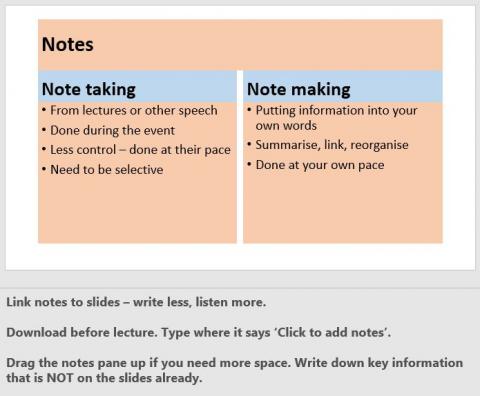
Doodle/sketch method
Convert information into a mixture of images, words and diagrams in ways which are meaningful to you. Fun, creative and very effective at helping you remember new information.
Table/matrix method
Summarise information in a table to make it more concise and logical.
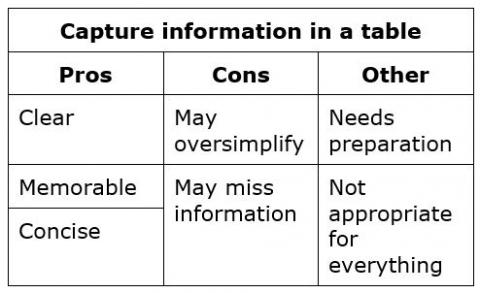
If none of these seems right for you then experiment with your existing note-making style.
For example, use highlighters, doodles, underlining, boxes and arrows to make important information stand out.
And always leave plenty of space to add notes later.